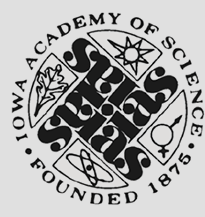Home > Iowa Academy of Science > Journals & Newsletters > Iowa Science Teachers Journal > Volume 14 > Number 3 (1977)
Document Type
Article
Abstract
It would seem to be a rat her simple matter to define what science is and how it operates. After all, a good portion of our high school and college careers have been spent in science classrooms and laboratories. Possible answers might be that science is an organized body of knowledge and that it operates by discovering the truth about nature through the use of scientific method. It seems equally simple to visualize science as a massive pile of bricks with each scientist adding a new brick each time he discovers a new fact or invents a new theory. Further, if one has ever taken the time to read the history of a discipline in a textbook, the picture portrayed is one of a steady progression in a logical and straight forward manner from ignorance to present-day truth. Probably most of us view science in such a way. This paper will attempt to give a different view of what science is and how it operates. This other view of science is based on the premise that without instrumentation, man is limited in what he can "know" because he is limited in what his senses perceive.
Publication Date
December 1977
Journal Title
Iowa Science Teachers Journal
Volume
14
Issue
3
First Page
2
Last Page
3
Copyright
© Copyright 1977 by the Iowa Academy of Science
Language
en
File Format
application/pdf
Recommended Citation
Slock, James
(1977)
"A Philosophical Approach to the Meaning of Science,"
Iowa Science Teachers Journal: Vol. 14:
No.
3, Article 2.
Available at:
https://scholarworks.uni.edu/istj/vol14/iss3/2

